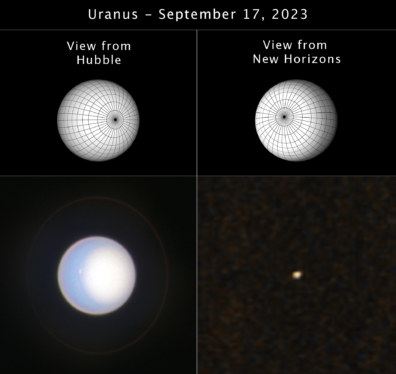Lunar Autonomy Mobility Pathfinder Workshop: A NASA Chief Technologist Sponsored Workshop

OVERVIEW
The NASA chief technologist’s team, within the Office of Technology, Policy, and Strategy (OTPS), is hosting a Lunar Autonomy Mobility Pathfinder (LAMP) workshop on Tuesday, November 12, 2024, to provide a community forum to discuss modeling and simulation testbeds in this domain. The workshop is in coordination with NASA’s Space Technology Mission Directorate.
With the Artemis campaign, NASA will land the first woman and first person of color on the Moon, using innovative technologies to explore more of the lunar surface than ever before. Technologies like trusted autonomy are necessary to support these types of sustained operations. Trusted autonomy is a more robust level of autonomy designed for long-term operational use.
The LAMP workshop will be held on Tuesday, November 12, 2024, from 10 a.m. to 5 p.m. PST at the University of Nevada Las Vegas (UNLV) Black Fire Innovation Facility in Las Vegas, Nevada. The Black Fire Innovation Center Building is located at 8400 W. Sunset Blvd. Las Vegas, NV 89113, approximately 20 minutes from the UNLV main campus.
This workshop has been designed to coincide with the 2024 Lunar Surface Innovation Consortium fall meeting (also taking place in Las Vegas, Nevada).
The OTPS solver-in-residence is the main organizer and facilitator for this workshop.
PROGRAM
The LAMP workshop will provide a forum for a discussion on topics that include:
- A modeling and simulation (M&S) pathfinder to explore an integrated sim environment for lunar stakeholders from commercial industry, other U.S. government agencies, international partners and academia, to simulate their systems that would eventually operate in the lunar environment and to test interoperability between systems.
- How to leverage the planned rover missions to 1) calibrate and improve this M&S environment over time, and 2) potentially use them as autonomy testbeds to safely mature algorithms in a relevant environment.
Please RSVP for in-person or virtual attendance by registering at the following site:
https://nasaevents.webex.com/weblink/register/rdf4dd38bc3bf176dc32d147513f7b77c
*Please note registration is on an individual basis. If attending with multiple guests, each guest must register for the event separately.
LAMP Workshop Agenda
(All times listed are in PST and subject to change)
| 10:00 a.m. – 12:00p.m. | Modeling and Simulation (M&S) showcase (In-person only & optional) This is an opportunity for interested participants to show their lunar simulation capabilities inside of UNLV’s Blackfire Innovation esports arena. Space is limited. Please indicate if you are interested in participating when you register, and we will reach out with additional information. |
| 1:00 –2:00p.m. | Challenges to Developing Trusted Autonomy NASA will discuss the challenges of maturing autonomy that can be trusted to operate over long periods of time and how we can work together to overcome those challenges. |
| 2:00 –3:00p.m. | Pre-Formulation Discussion of a Lunar Autonomy Mobility Pathfinder Modeling and Simulation Environment Subject matter experts (SMEs) from NASA will layout thoughts on what a digital transformation pathfinder would look like that benefits lunar autonomy efforts across the globe. |
| 3:00 – 3:15p.m. | Break |
| 3:15 – 4:15p.m. | Lunar Testbeds Discussion This will be a discussion focused on how assets on the moon could be used as testbeds to generate truth data for Earth-based simulations and to validate that autonomy can be trusted in the lunar environment. |
| 4:15 – 5:00p.m. | Polling and Discussions Audience feedback will be solicited on various topics. This will include a pre-formulated series of questions and real time polls. |
CONTACT
For questions, please email:

Dr. Adam Yingling
2024 OTPS Solver-in-Residence
Office of Technology, Policy, and Strategy (OTPS)
NASA Headquarters
Email: adam.j.yingling@nasa.gov
The Solver-in-Residence (SiR) program is a one-year detail position with the chief technologist in NASA’s Office of Technology Policy and Strategy. The program enables a NASA civil servant to propose a one-year investigation on a specific technology challenge and then work to identify solutions to address those challenges.

